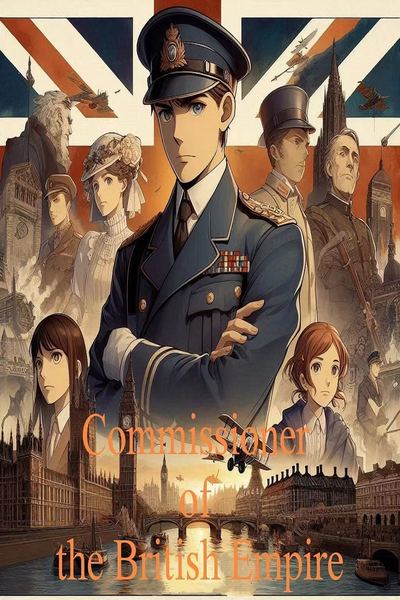This was the main purpose of this meeting of officials, and the subtext was to get money! to put into practice the mission that the British Empire would never surrender until the last drop of Indian blood had been shed.
This, of course, was no problem, and most of the high officials agreed that the matter was not difficult, except that the high officials of Bombay and Bengal Provinces expressed the hope that the Congress Party would give a clear indication of its support in this matter.
Of course, there is no need to mention the province of Bengal. It is only two years since the Bengal famine, and to support the operations in Burma, the province of Bengal, which is very close to Burma, will certainly have to bear the heavy responsibility, which requires the support of the Indian elite.
That is to say, the full support of the Congress Party, the relationship between British India and the Congress Party was not very friendly, each other to watch and take advantage of each other, you know, Bengal high official Burke also spoke out, "In fact, the mutiny created by the Indian soldiers, although they were all suppressed very quickly, but this trend must be worrying".
As early as July 1942, the Congress Party made a plea to the British authorities for full independence, and the document it drafted stated that mass disobedience would break out if Britain did not accede to its demands.This was followed by the adoption of the "Quit India Resolution" at the Bombay meeting of the Central Committee of the Congress Party, which marked the formal beginning of the Quit India Movement, a massive campaign that began with peaceful demonstrations, denial of authority and weakening of the British war effort, and continued with large-scale protests across India and calls for collective strikes by workers.
At the same time, the threat to British India following the Japanese occupation of Burma really frightened a lot of people in British India at the time, and it was good to see that the movement was eventually put to rest.
"Alan, how's the movement in Hyderabad?" Sir Barron turned his head to Alan Wilson, hoping to get some good news from him.
"Sir Barron, judging by the Hyderabad Tuktuk and the other small Tuktuks that have been divided, there is no doubt that the monarchs of these Tuktuks remain very supportive of the Viceroyalty and the administration of British India."Alan Wilson stood up and reported in a moderate voice, "I believe that the majority of the Tuktuks have also always viewed British India as an important force in securing order in South Asia, and that they are not the same as the Congress Party and the PMLN."
Sir Barron nodded, then John stood up and said, "The Junagadh Tupa, as well as the Tupas on the west coast, are also quiet and much more at ease than many of the areas where the Congress Party has established its influence."
"So things don't look too bad!"Sir Barron nodded, then added worriedly, "There is another problem that hasn't arisen yet, but we must be on our guard against it, and the Governor expects us to come up with a solution soon.How do we deal with the Indian National Army?"
A silence greeted Sir Barron, the dawn of victory was not far away, but the problems that were about to arise were more difficult than one.The Indian National Army was a military organization founded by Chandra Bose, an army that initially consisted mainly of British Indian Army prisoners of war captured by the Axis Powers, but later many Indians from Japanese-controlled Malaya and Burma also volunteered to join the organization.
The organization's goal was to liberate India from the British, and it assisted the Japanese in the Battle of Imphal against the British Indian Army during the Japanese occupation of Burma in World War II.
Chandra Bose, although he joined the Axis side, had a great reputation in later times, and the portrait has always been associated with Gandhi and Nehru, so you can imagine his own status in India.
How to face these anti-British forces, although no one spoke first, but the heart of all Chandra Bose and the entire Indian National Army hate to kill.
"It's still war time and it's too early to talk about it, but if this question comes up, using Indian soldiers to guard these so-called National Army soldiers is not a good idea," Burke, a senior official of the Bengal Province, spoke up, "Many Indian soldiers with these Axis-leaning soldiers will probably contribute to the spread of dangerous ideas which will be detrimental to the British Empire."
"For most of the Indian National Army soldiers, we can completely of course they do not exist, as for how the Burmese treat them, we can not care and do not ask, wait for a few years time, it will be completely irrelevant to us, after the war reconstruction, restore production of so many things, even if we forget about these people is also very normal, is not it?"
Alan Wilson followed the words of the high official of the Bengal Province, turned around and continued, "As for Chandra Bose himself, I certainly hope that he dies right in the middle of the war, but the war is not over yet, you can leave him alone for now.
Alan Wilson suggested that the tens of thousands of Indian National Army prisoners of war should be thrown into Burma to fend for themselves and not be escorted back to India at all, he still has some understanding of Burma, the first major ethnic group in Burma, the Burmese, and the vast majority of other ethnic groups, and the Indians do not have much friendship at all, and the religion is not the same, Burma is Buddhism, India is Hinduism.
Do not think that Buddhists must be very peace-loving, Chinese Buddhists are also three Wuyi Zong and Buddhists after in-depth exchanges, Buddhism only great enlightenment to become a Buddha on the ground.Burmese Buddhism has never been extinguished and is now just as murderous and arsonist.
And because British India's political status and human resources led the British Empire to use South Asians to govern other colonies in general when it came to administering the colonies, the great name of the red-haired San was known even in the tenements of Mordor, not to mention other British colonies!
After the occupation of Burma, a large number of Indians were moved to Burma. The post-colonial Burmese government was unfriendly to the Indians, not allowing them to join the army and suppressing related cultural practices.
Alan Wilson believed that these prisoners of war of the Indian National Army, once in the hands of the Burmese, unless the British officials in the making were about to forget them, the likelihood that the Burmese would make these enemies of the British Empire worse than death.
On hearing this, Sir Barron asked earnestly, "Oh? Will something so natural happen?"
"Perhaps. There are many local forces that we cannot all understand, and once provoked, they may do something irrational."Alan Wilson shrugged and laughed in an uncertain tone.
"Oh, that's quite a surprise."Keane, a high official of the United Provinces, sighed heartily and said with a touch of contemptuous disdain, "It's also a good thing that the whole of India is breeding like cockroaches, even if they can't even eat, the more they have to mate from moment to moment, and the more they go around, the more they're just an endless throng of people."











Comments (0)
See all